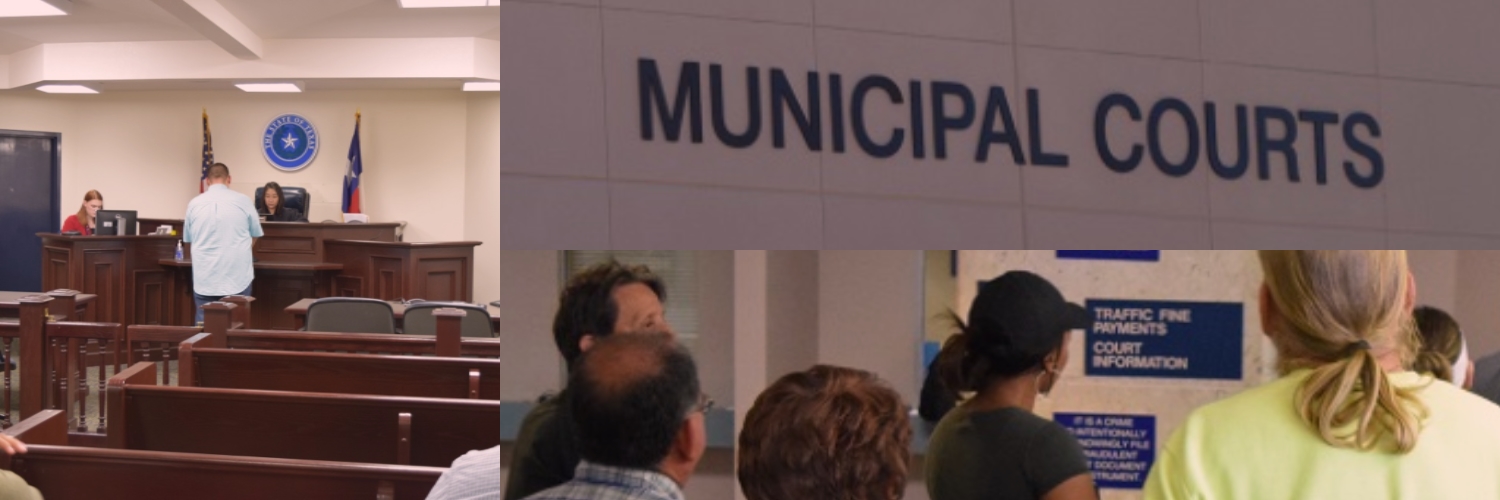FINES AND FEES
Unless you are pleading “not guilty”, you must enter a plea of no contest or guilty and pay your fine and court costs. A judgment and conviction will be entered and this conviction will be reported to the Texas Department of Public Safety.
You may pay your court costs on a payment plan. By law, if the fine and court costs are not paid within 30 days of the judgment, a fee of $25.00 will be added to the case.
If you are unable to pay the ordered fines and costs there are other options available to satisfy the court costs and fines. To see if you qualify for these options you will need to appear in person and bring all documents identifying all sources of income and bills.
_______
PAYMENTS ONLINE
For your convenience, the City of Corpus Christi Municipal Court is now offering online payment processing for fines, such as traffic violations.
Go to the Municipal Court Fines Online Payment Module »
_______
PAYMENTS BY MAIL
Payments mailed must be postmarked on or before your court appearance date.
Payment in the form of money order or check should be made payable to the City of Corpus Christi Municipal Court. Please include your citation or docket number. Do not send cash. Cases must be paid in full or in installments if you are currently on a payment plan.
Payments by mail should be sent to:
P.O. Box 23077
Corpus Christi, TX 78476-2235
For your convenience:
There is a drop box located near the entrance of the Municipal Court.
_______
PAYMENTS MADE IN PERSON
Payments may be made in person at:
120 N. Chaparral St.
Corpus Christi, TX 78401
Monday thru Friday 8:00 a.m. to 4:30 p.m. (excluding holidays)
Payment in the form of cash, check, money order, Visa, MasterCard, Discover, or American Express will be accepted.
_______
FAILURE TO RESOLVE YOUR CASE
The Court may initiate the following actions if you fail to resolve your obligations:
File an additional offense against you for Failure to Appear.
Refer your case to a Collection Agency
Issue a warrant for your arrest.
Send notification of your outstanding case(s) to the Department of Public Safety, which will result in a denial of renewal or issuance of your driver's license.
_______
Your total fine amount is comprised of the following components:
Court Costs are mandated by state law and are payable to the State
Fines and Fees are established by the presiding judge in accordance with state law and are payable to the Municipal Court
_______
FINES
The amount of the fine the court assesses is determined by a judge based on the facts and circumstances of the case. The maximum fine for most municipal court traffic violations is $200; for State Penal Code violations--$500; for certain city ordinance violations--$1,000 - $4,000; and other city ordinance violations--$500.
_______
COURT COSTS & FEES
In addition to a fine, other court costs mandated by state law will be charged. The costs differ depending on the offense. If you are inquiring about your total balance, fine amount, or court costs, please call (361) 826-2500.
If you request a jury trial, a $3 jury fee is assessed. If you request a trial by jury and fail to withdraw the request prior to 24 hours before the time of trial, you shall be assessed a $3 jury fee.
If you go to trial and police officers who are on overtime are called in to testify, the court must add this cost of overtime (usually about $100.00) as court costs.
When requesting a payment plan for your fines, be aware that a time payment fee of $25 will be assessed for each case on the plan.
Court costs are assessed if you are found guilty at trial, if you plead nolo contendere, if your case is deferred for a driving safety course, or if your case is deferred and you are placed on probation. If you are found not guilty, court costs cannot be assessed.
_______
Who may receive information and documents from the Court?
Information can only be given to a defendant or his/her attorney. Unless you are the parent of a defendant who is 16 years of age or younger, you will not be given information regarding a case, or be allowed to address any matters before the Court. Family members cannot resolve cases for defendants or receive information on their cases.

